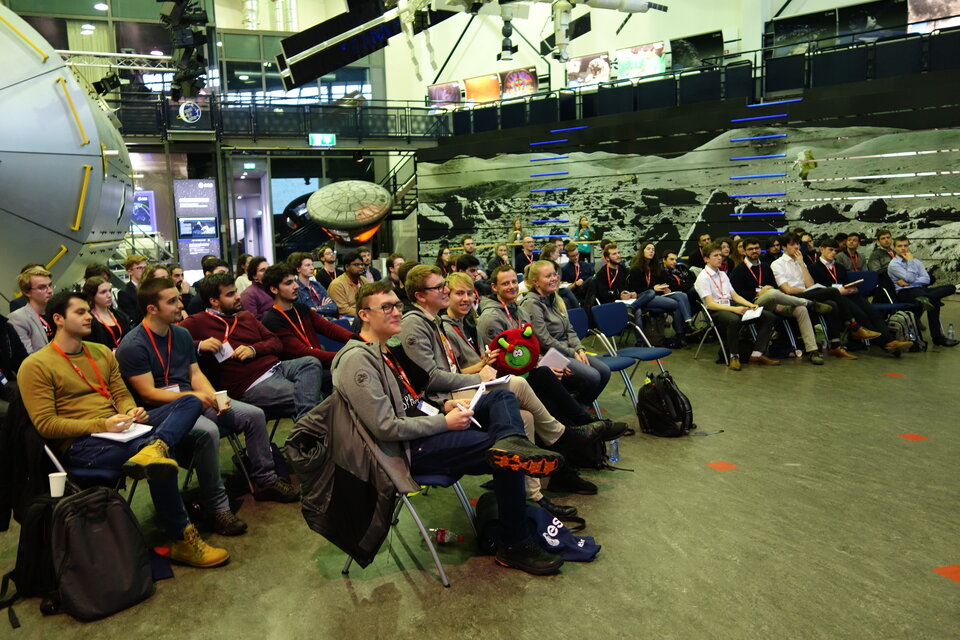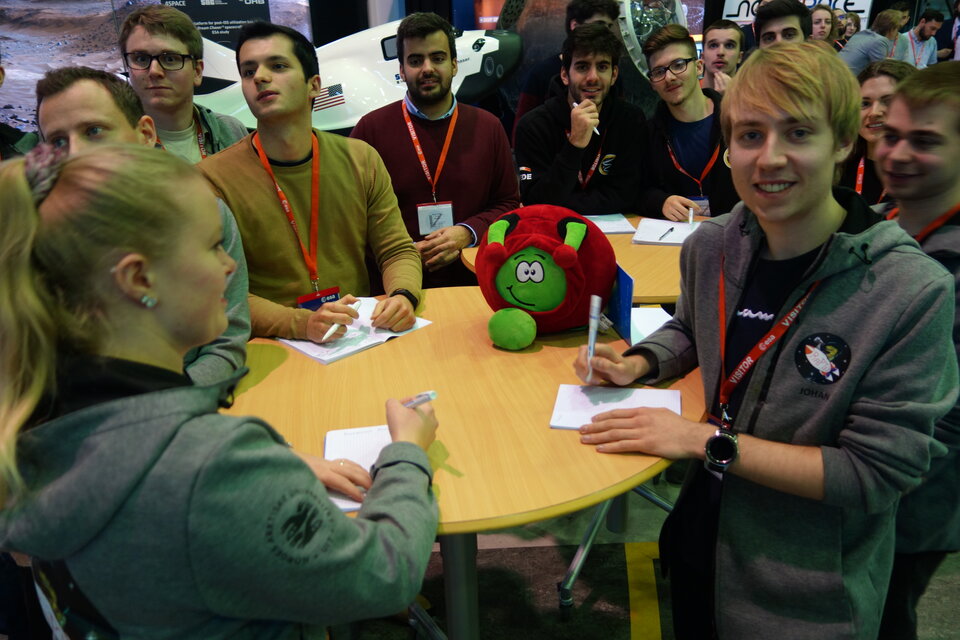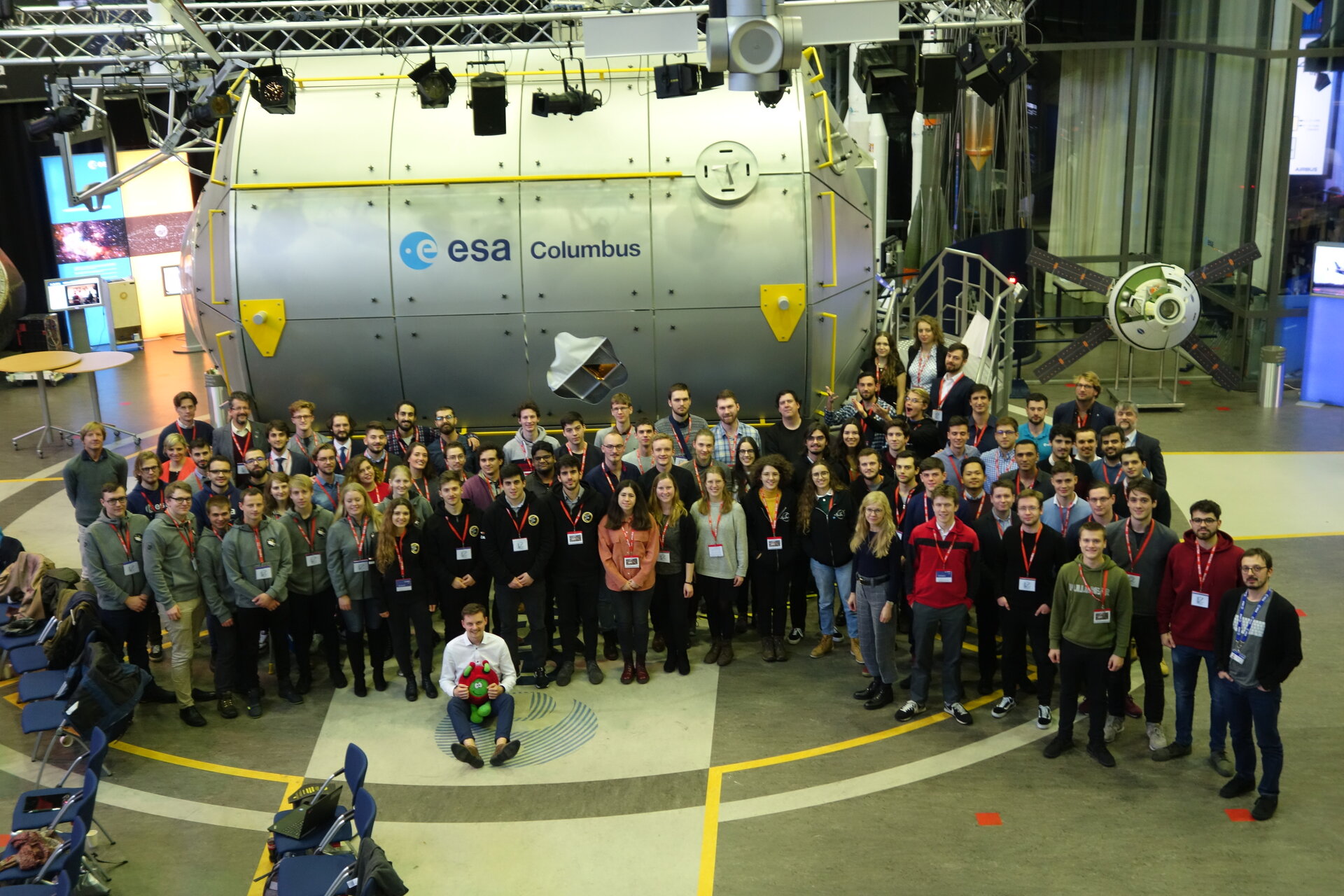New student teams selected for REXUS/BEXUS
Christmas has come a little early for ten new teams who moved one step closer to their dream of flying experiments to the edge of space on a sounding rocket or stratospheric balloon.

Between 27-29 November 2019, 77 students, representing 13 teams from around Europe, travelled to ESTEC, ESA’s engineering and technology centre in The Netherlands, to present their experiment proposals to a panel of experts. Ten of these teams have now been selected to participate in the 13th cycle of the Rocket/Balloon Experiments for University Students (REXUS/BEXUS) programme.
The teams attending this exciting event represented eight ESA member states, with team members covering 13 ESA member states and 5 other countries. Before pitching their ideas to the selection panel the participants were first offered interactive training sessions in areas such as requirement definition, documenting a space project, project planning and risk management.

The 12-strong selection panel included engineers and scientists from ESA and their programme partners: the Swedish National Space Agency (SNSA), SSC, ZARM, and the German Space agency’s (DLR) mobile rocket base (MORABA).
The diverse and innovative proposals covered an array of topics from 3D printing to balloon-borne radar.
Along with the intense presentations, trainings, and networking with fellow students and professionals, the participants were treated to a tour of some of the ESTEC facilities before travelling back to their universities.
The teams selected to fly their experiments on board BEXUS 30/31 are:
- SARIA: Synthetic-Aperture Radar using an Inflatable Antenna, from the University of Porto, Portugal.
- Stardust: Investigation of microbes in the stratosphere, from the Gdańsk University of Technology, Poland.
- STRATOSPOLCA: STRATOSpheric POLarimetry with Cadmium Telluride Array, from the University of Coimbra, Portugal.
- O-Zone: Ozone monitoring and pollution control, from the University of Padua, Italy.
- BoB:BAMMsat-on-BEXUS, from Cranfield University and the University of Exeter, United Kingdom.
- ECO-WISE: Environmental COmputations WIth low coSt sEt-up, from the Aristotle University of Thessaloniki, Greece.
The teams selected to fly their experiments on board REXUS 29/30 are:
- ECRIDA: 3D Printing by Curing Resin In-orbit using UV Digital Light Processing Apparatus, from the University Politehnica of Bucharest, Romania.
- B2 D2: Bistable Boom Dynamic Deployment, from the Royal Institute of Technology, KTH, Sweden.
- RaPTeX: Radiologic Particle Telescope Experiment, from UiT The Arctic University of Norway, Norway.
- ASTER: Attitude Stabilized Free Falling Experiment, from Luleå University of Technology, Sweden
As the REXUS programme is realised under a bilateral agreement between SNSA and DLR, a concurrent selection workshop was also held at DLR Bonn, where eight German teams were selected:
BEXUS 30/31:
ELFI: Extremely Low Frequency and IMU, from University of Applied Sciences Nordhausen,
FaNS: Fast Neutron Spectrometer, from Christian-Albrecht University of Kiel,
MASS: Manufacturing of Structures in Space, from Munich University of Applied Sciences.
REXUS 29/30:
µMoon: Verification and Simulation of Enceladus´ Plume Models, from Aachen University of Applied Sciences,
Daedalus2: from Julius Maximilian University of Würzburg,
HERMESS: Hull applied ElectroResistive Measurement of Structural Strains, from Bundeswehr University Munich,
IMFEX: ISRU MoonFibre Experiment, from RWTH Aachen University,
S Cephei: Suspension of Carbon Nanotubes under dielectrophoretical Influence, from Technical University of Dresden.
More information about the DLR selection can be found here.
The hard work begins now as the teams start to develop their preliminary design, ready for review during a dedicated Student Training Week to be held in SSC’s Esrange arctic launch base in Northern Sweden, scheduled for the 10–14 February 2020.
Congratulations to all teams selected!


